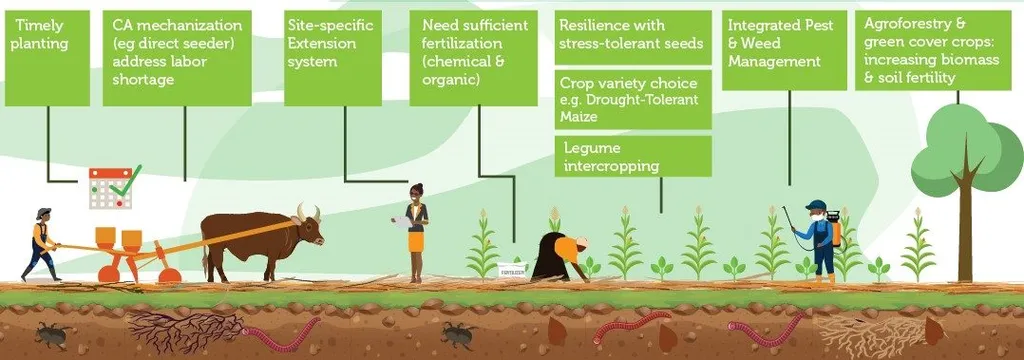In the heart of South Africa, where the agricultural sector is both a lifeline and a vulnerability in the face of climate change, a new study offers a beacon of hope and a roadmap for resilience. Led by Rudzani V. A. Mudzielwana, this comprehensive review, published in the journal “Frontiers in Sustainable Food Systems” (translated as “Frontiers in Sustainable Food Systems”), delves into the intricate world of climate-smart food systems (CSFS), a holistic approach designed to bolster agricultural resilience and mitigate greenhouse gas emissions.
The study underscores the urgent need for the agricultural sector to adapt to shifting climatic conditions while simultaneously reducing its environmental footprint. “Climate change is not a distant threat; it’s here, and it’s reshaping our agricultural landscape,” Mudzielwana asserts. “Our review highlights the critical need for integrated strategies that not only help farmers adapt but also contribute to mitigating climate change.”
The research synthesizes current literature on a range of adaptation strategies, from drought-resistant crops and precision agriculture to agroecological practices. It also explores mitigation efforts, including carbon sequestration, emissions reductions in livestock, and the development of circular food systems. These strategies are not just environmentally sound; they also hold significant commercial potential for the energy sector. For instance, the integration of renewable energy sources into agricultural practices can reduce reliance on fossil fuels, lower operational costs, and open up new revenue streams.
However, the path to implementing climate-smart food systems is fraught with challenges. Financial constraints, inadequate technical support, and fragmented policies are significant barriers. Mudzielwana emphasizes the need for robust policy interventions, multi-stakeholder collaborations, and the adoption of emerging technologies to overcome these hurdles. “Strengthening governance, financial mechanisms, and knowledge-sharing platforms is essential for the widespread adoption of climate-smart strategies,” he notes.
The study’s findings have profound implications for the future of agriculture in South Africa and beyond. By aligning adaptation, mitigation, and policy efforts, the country can foster a resilient agricultural sector that supports food security and sustainable development. For the energy sector, this research underscores the potential for innovative, sustainable solutions that can drive economic growth while combating climate change.
As the world grapples with the realities of climate change, this research serves as a timely reminder of the power of integrated, forward-thinking strategies. It challenges us to rethink our approach to agriculture and energy, urging us to embrace a future where resilience and sustainability go hand in hand. In the words of Mudzielwana, “The time for action is now. Together, we can build a future where our food systems are not just resilient but also a force for good in the fight against climate change.”

